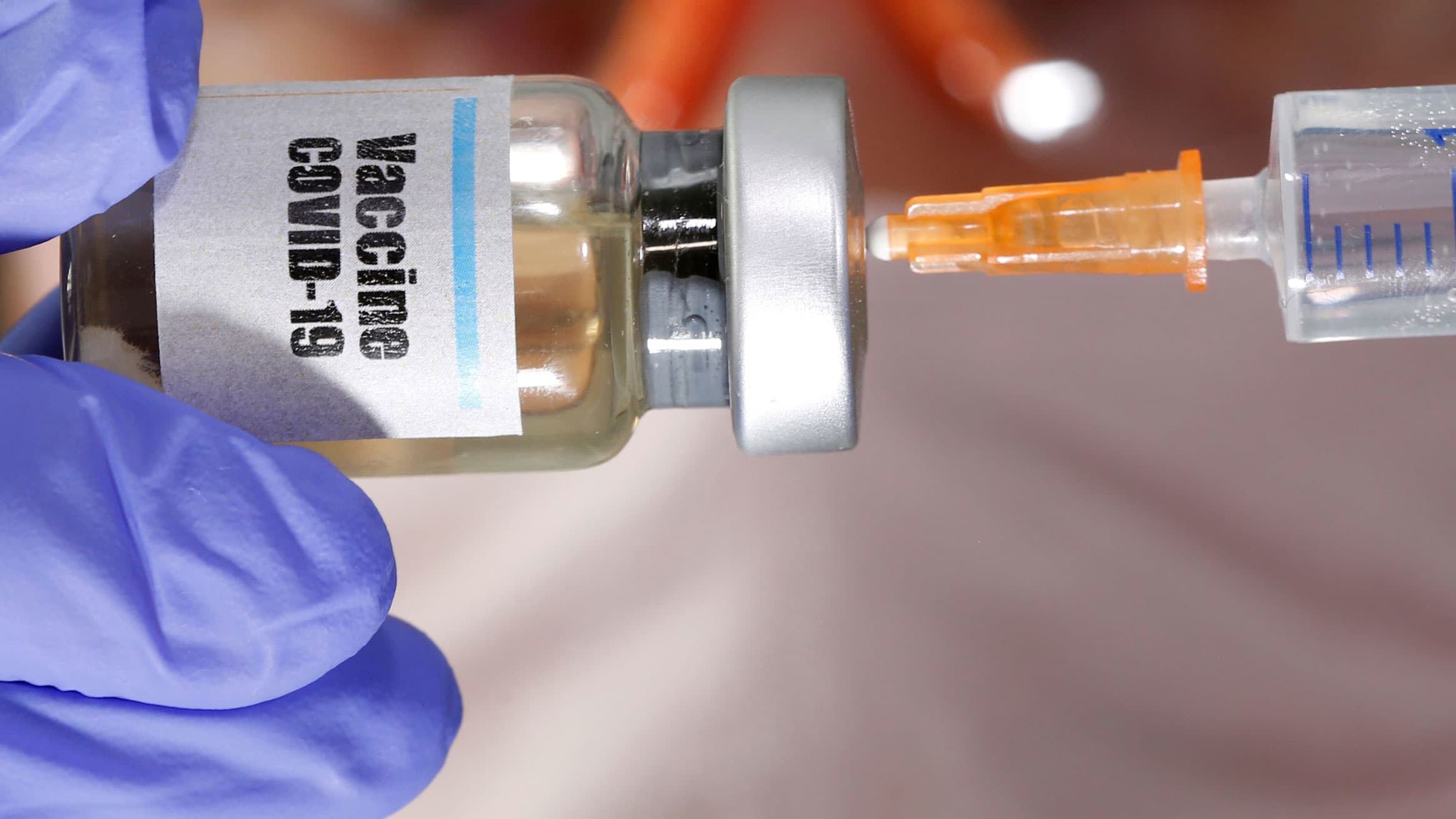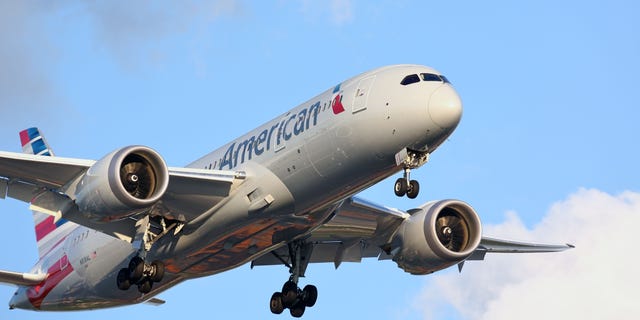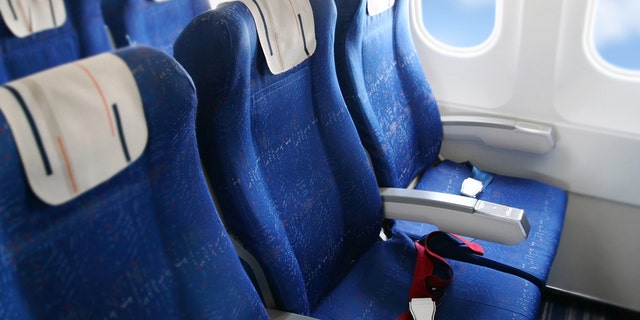Pfizer stock jumps after it reports positive data in early stage coronavirus vaccine trial – CNBC

Pfizer shares jumped 4% Wednesday after it released positive results from its closely watched early stage human trial of a coronavirus vaccine.
The trial evaluated 45 people. Each participant received 10, 30 or 100 microgram doses of the vaccine or a placebo.
The company said one of its four coronavirus vaccine candidates produced neutralizing antibodies, which researchers believe is necessary to build immunity to the virus, in all participants who received two of the 10 or 30 microgram doses after 28 days, according to the preliminary data, which was posted in a paper released on MedRXiv. The company said the levels of neutralizing antibodies were 1.8 to 2.8 times higher than in recovered Covid-19 patients.
After 28 days, all participants in the two lower dose groups had significant levels of binding antibodies, the company said.
“We are encouraged by the clinical data of BNT162b1, one of four mRNA constructs we are evaluating clinically, and for which we have positive, preliminary, topline findings,” Kathrin Jansen, head of Pfizer’s vaccine research and development, said in a press release. “We are dedicated to develop potentially groundbreaking vaccines and medicines, and in the face of this global health crisis, we approach this goal with the utmost urgency.”
The headquarters of German immunotherapy company BioNTech stands on April 22, 2020 in Mainz, Germany.
Thomas Lohnes | Getty Images
The U.S.-based pharmaceutical giant has been working alongside German drugmaker BioNTech. The company’s experimental vaccine contains genetic material called messenger RNA, or mRNA. The mRNA is a genetic code that tells cells what to build — in this case, an antigen that may induce an immune response to the virus.
Pfizer said the vaccine was generally well tolerated, though the experimental vaccine caused fever in some patients, especially for those who were in the 100 microgram group. Most patients reported pain at the injection site, which was mild to moderate, the company said, except in one of 12 subjects who received a 100 microgram dose, which was severe.
The findings posted Wednesday have not been peer-reviewed yet.
The effort by Pfizer and BioNTech is one of several working on a potential vaccine to prevent Covid-19, which has infected more than 10 million people worldwide and killed at least 511,851, according to data compiled by Johns Hopkins University. There are more than 100 vaccines currently under development, according to the World Health Organization.
Another leading vaccine candidate from biotech firm Moderna is expected to enter a late-stage trial later this month, pending the results from its mid-stage trial. If all goes well in Moderna’s next trial, its vaccine could be available for public distribution by the end of the year.
A woman holds a small bottle labeled with a “Vaccine COVID-19” sticker and a medical syringe in this illustration taken April 10, 2020.
Dado Ruvic | Reuters
Hopes to get a vaccine to market are high, but scientists are setting expectations low for how quickly it can happen. Developing, testing and reviewing any potential vaccine is a long, complex and expensive endeavor that could take years, global health experts say.
Dr. Anthony Fauci, the nation’s leading infectious disease expert, has said he is “cautiously optimistic” scientists can find a safe and effective vaccine by early 2021.
Scientists hope the antibodies provide some degree of protection against getting Covid-19, but they can’t say that definitively yet since the virus was first discovered just six months ago. It hasn’t been studied in-depth and some patients appear to have been reinfected after recovering from Covid-19.
A recent study published in Nature Medicine found coronavirus antibodies may last only two to three months after a person becomes infected with Covid-19. Researchers examined 37 asymptomatic people, those who never developed symptoms, in the Wanzhou District of China. They compared their antibody response to that of 37 people with symptoms.
Scientists conducting larger vaccine studies later this year hope to answer lingering questions about Covid-19 antibodies.
Pfizer said it expects to manufacture up to 100 million doses by the end of 2020 and potentially more than 1.2 billion doses by the end of 2021. The company intends to begin a mid-stage trial as early as this month.
Read More: Pfizer stock jumps after it reports positive data in early stage coronavirus vaccine trial – CNBC
American Airlines‘ decision to open up middle seats for booking has drawn criticism from both the director of the U.S. Centers of Disease Control and Prevention (CDC), virologist Dr. Robert Redfield, and White House Coronavirus Task Force member, immunologist Dr. Anthony Fauci.
CLICK HERE FOR COMPLETE CORONAVIRUS COVERAGE
The airline announced it would be ending its middle seat booking ban beginning July 1, allowing its flights to be booked to 100 percent capacity after more than two months of only booking to 85 percent in an effort to encourage social distancing during the coronavirus pandemic.

American Airlines defended its decision in a comment to Fox News, stating the airline has “multiple layers of protection in place for those who fly with us, including required face coverings, enhanced cleaning procedures, and a pre-flight COVID-19 symptom checklist.
(iStock)
The move has prompted criticism from health officials. During a Senate Health, Education, Labor and Pensions Committee hearing Tuesday, Redfield called the airline’s decision a “substantial disappointment,” and said it didn’t send “the right message,” TravelPulse reported.
CLICK HERE TO SIGN UP FOR OUR LIFESTYLE NEWSLETTER
Fauci expressed similar distress, stating the airline’s change was “something that is of concern.”
American Airlines defended its decision in a comment to Fox News, stating the airline has “multiple layers of protection in place for those who fly with us, including required face coverings, enhanced cleaning procedures, and a pre-flight COVID-19 symptom checklist — and we’re providing additional flexibility for customers to change their travel plans, as well.”
FOLLOW US ON FACEBOOK FOR MORE FOX LIFESTYLE NEWS
Though American Airlines – which had been booking flights to 85 percent capacity, meaning most middle seats were already occupied by travelers – caught criticism for its decision to book 100 percent of flights, it is not the only major carrier to do so.
United Airlines also revealed it would end its practice of blocking middle seats.

Other major carriers like Delta, Southwest, Alaska Airlines and JetBlue have all committed to continue blocking middle seats in an effort to comply with CDC-recommended social distancing coronavirus protocols through at least July.
(iStock)
The airlines’ policy reversals come as several states have experienced spikes in the coronavirus and health officials have warned of a second wave of the virus.
CLICK HERE TO GET THE FOX NEWS APP
Other major carriers like Delta, Southwest, Alaska Airlines and JetBlue have all committed to continue blocking middle seats in an effort to comply with CDC-recommended coronavirus protocols through at least July.
